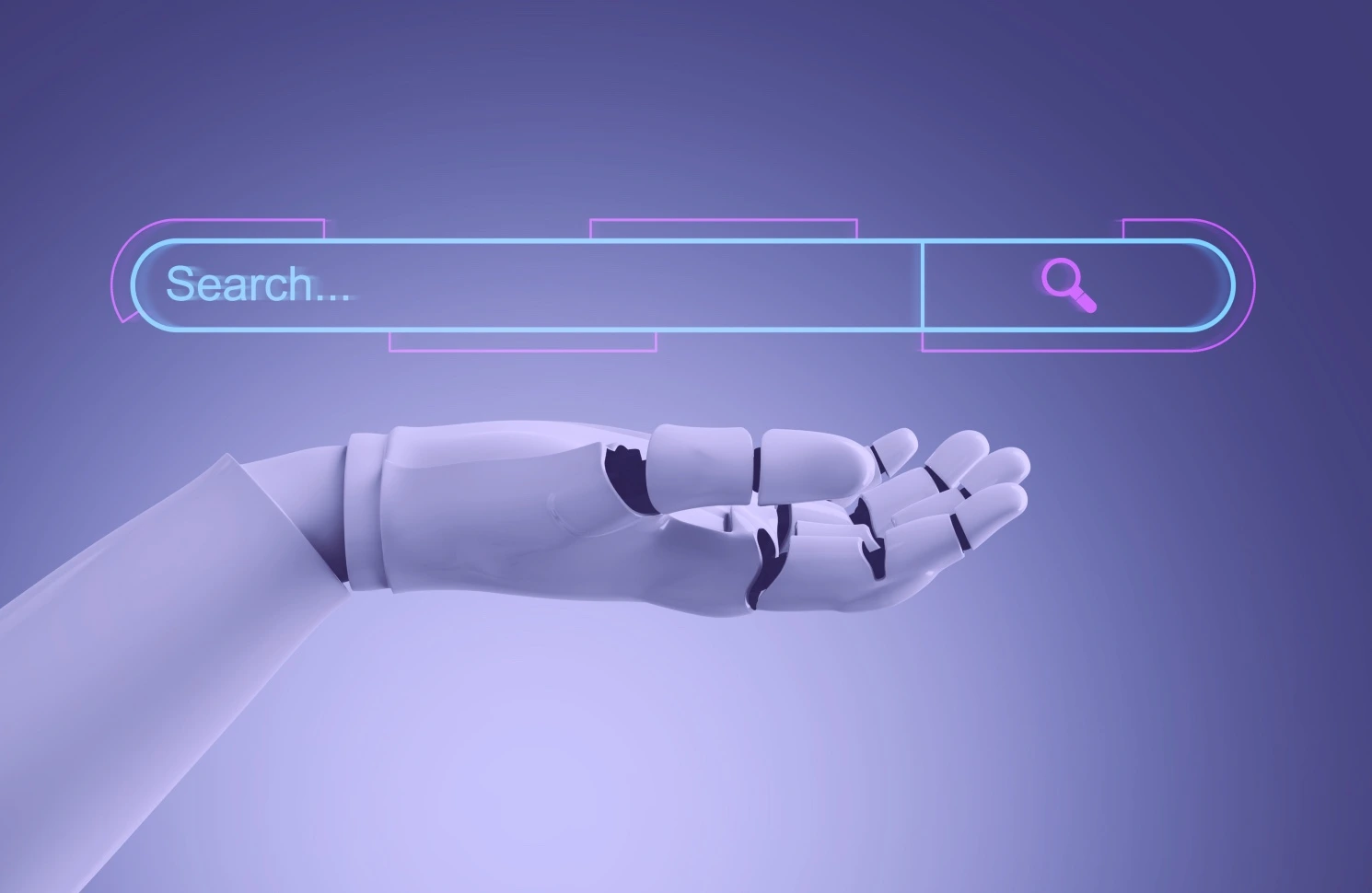

Why generative AI will revolutionize SEO in 2026
FEB. 17, 2025
2 Min Read
AI isn’t killing SEO—it’s transforming it into something more powerful than ever before.
The prevailing opinion by many is that “SEO is dead.” Why bother with traditional search engines if you can ask a question directly to a tool like ChatGPT or Perplexity?
We think this take is overblown. AI (artificial intelligence) may be changing how users get the information they’re looking for, but it hasn’t yet rendered SEO obsolete. Search engines are still invaluable for discovering, verifying, and contextualizing content.
That said, generative AI drives SEO's biggest transformation since mobile-first indexing. From how keywords are targeted to how content is created and ranked, AI is changing the game’s rules. Businesses that find a way to adapt will gain a significant edge in organic traffic and engagement, while those that cling to outdated tactics risk losing visibility.
The convergence of AI and SEO: A paradigm shift in digital marketing
Traditional SEO was built on keywords and backlinks. It's an approach that only provides a superficial understanding of a user’s intent and the content they’re looking for. Critical nuance, like the context surrounding a query and the deeper meaning behind their words, remains unaccounted for.
Marketers need a new playbook for content creation and technical optimization.
Why traditional SEO tools are no longer enough in the AI era
“Modern search algorithms have evolved far beyond the capabilities of legacy SEO tools,” notes Lumenalta’s Mike Barkemeyer. Today, search engines go beyond basic keyword matching, instead analyzing user intent, content relevance, and semantic relationships between topics.
Generative AI is uniquely equipped to consider all these variables, and marketers who harness it gain a much deeper understanding of user needs. This is particularly true when AI is enhanced with Retrieval-Augmented Generation (RAG), a technology that allows AI models to access and learn from your business’s specific information and content repository.
How top performers are using gen AI to dominate search rankings
Generative AI is giving its adopters a clear edge in the SEO race. While many businesses use tools like ChatGPT to help create content, forward-thinking organizations are taking it a step further by implementing RAG systems. These systems combine the power of generative AI with their own proprietary content and data, enabling the creation of highly accurate, business-specific content that resonates deeply with their target audience.
The scale advantage: Breaking content barriers without sacrificing quality
Creating enough content to cover a full keyword strategy used to mean cutting corners on quality or depth. Generative AI eliminates this trade-off. By training AI models on your business's unique information through RAG, organizations can now produce vast amounts of targeted, high-quality content that not only meets diverse audience needs but also maintains perfect alignment with their brand's expertise and offerings.
Unlocking search intent
Understanding search intent has always been central to SEO, but it has historically been more of an art than a science. That’s changing with AI. Marketers can leverage AI tools, particularly those enhanced with RAG capabilities, to delve beneath surface-level search data and uncover patterns in user behavior and contextual cues. This deep dive into user intent, combined with access to your organization’s specific knowledge base, helps businesses create more targeted content that boosts engagement and search rankings.
Maintaining brand authority in an AI-first world
While the allure of AI-powered SEO is strong, Mike implores organizations to “make sure you don’t lose your brand's unique voice in the process.” The key is balance: leveraging AI’s analytical prowess while ensuring your brand's value proposition and personality shine through. This is where RAG becomes particularly valuable–by training AI models on your existing content and business documentation, you can ensure that AI-generated content maintains your brand's voice, expertise, and authority. AI should merely enhance what you're already doing.
The future of SEO research is AI-powered market intelligence
Reactive keyword analysis is antiquated. AI is transforming SEO research into proactive market intelligence, and companies that capitalize on it are set to gain a notable competitive edge in emerging search trends.
Using gen AI to identify long-tail keywords, semantic relationships, and user search patterns
Valuable long-tail keyword opportunities lie hidden within semantic relationships and user search patterns. GenAI excels at connecting these dots, opening new avenues for high-ranking content, even for highly competitive keywords. When combined with RAG, these systems can identify nuanced keyword opportunities that specifically align with your business's capabilities and expertise.
The role of gen AI in predictive SEO
GenAI’s predictive capabilities help companies capture valuable first-mover advantages in emerging topics. For instance, an AI-powered system might identify rising interest in a related topic—“biodegradable packaging materials”— before it becomes a widespread trend. RAG-enhanced systems can then cross-reference these trends with your organization's existing knowledge base to identify where you have the strongest potential to establish authority.
Optimizing resources through AI-powered SEO
While the primary benefit of AI-powered SEO is driving growth through better search visibility, it also delivers significant operational advantages. Traditional SEO requires massive investments in manual keyword research, content creation, and performance analysis.
AI dramatically streamlines these processes:
AI dramatically streamlines these processes:
- Resource optimization: AI can analyze vast amounts of search data and create initial content drafts in minutes rather than hours.
- Faster market responsiveness: Predictive AI identifies emerging trends early, allowing teams to capture opportunities before competition intensifies.
- Reduced content waste: Better understanding of user intent means fewer resources spent creating content that won't perform.
- Scalable content operations: RAG-enhanced systems help maintain consistent quality even as content production scales up.
“The efficiency gains from AI-powered SEO aren’t just about doing things faster,” explains Mike. “It’s about allowing your team to focus on high-value strategic work while AI handles the heavy lifting of data analysis and initial content creation.”
The human-AI partnership: Building a sustainable SEO framework
Mike predicts that, despite what the headlines proclaim, “AI-powered SEO won't replace humans entirely. Rather, it will empower them to be even more effective.”
Going forward, the most effective SEO frameworks will blend AI's analytical capabilities with human expertise, judgment, and brand understanding. By implementing RAG systems, organizations can ensure their AI tools are working with the most relevant and accurate information possible. This integrated approach ensures you can preserve your brand’s authenticity while capitalizing on emerging trends before the competition.
Discover how AI can boost your organic traffic today.





